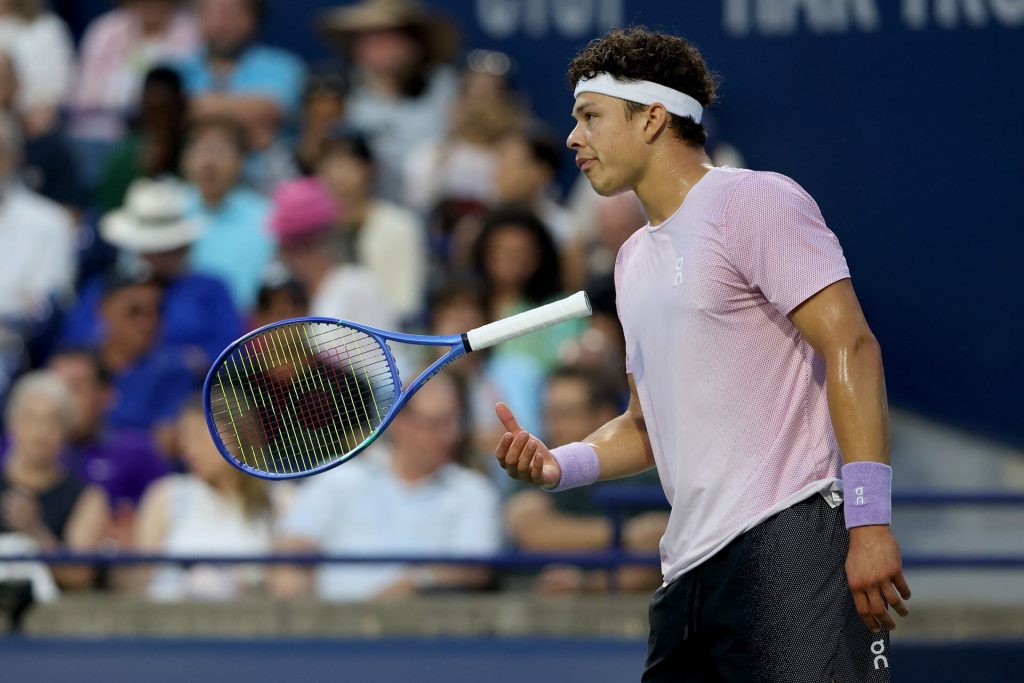Ben Shelton claimed his first Masters 1000 title in Toronto.
Despite the disappointment of losing Jannik Sinner, Carlos Alcaraz, and Novak Djokovic to withdrawals, event organizers were thrilled by Shelton’s impressive performance at the Canadian Open.
Aiming for his inaugural Masters victory, Shelton defeated several talented players, including Flavio Cobolli, Alex de Minaur, and Taylor Fritz, to reach the final.
In the championship match, Shelton outlasted Karen Khachanov, winning 6-7, 6-4, 7-6 to secure the title at the Canadian Open.
The 22-year-old demonstrated superior skill throughout the tournament, particularly in his semifinal match against Fritz.
Proposed Changes to Electronic Line Calling After Semifinal Incident
Before their semifinal clash, Shelton and Fritz faced a delayed start due to issues with the electronic line-calling system, forcing them to wait around 20 minutes.
In an interview with ‘The Slice Tennis,’ tournament director Karl Hale shared his reasoning for not substituting human line judges during the delay and expressed his desire for rule modifications going forward. He remarked,
“We had an issue with electronic line calling, causing the players to leave the court. The current rule stipulates that if you can’t begin the match without electronic line calling, you can’t just add line umpires. However, if the match starts and the technology fails, linespeople can be brought in afterward.
The fans’ frustrations grew, and once the match resumed, Shelton triumphed over Fritz in straight sets, 6-4, 6-3. Hale hopes to implement rule changes to avoid future delays.
Looking Ahead to the 2026 Canadian Open
The Canadian Open will follow its traditional rotation next year, with the women returning to Toronto and the men heading to Montreal.
Hale hopes to see a stronger lineup in Montreal, as he aims to prevent the type of withdrawals that plagued this year’s tournament.
In total, 18 players withdrew from the current Canadian Open, including four top-ten ranked players, but Hale is optimistic they will attract many of the same competitors in 2026.
With potential rule changes regarding electronic line calling on the horizon, the next Canadian Open promises to be an event you won’t want to miss next summer.



